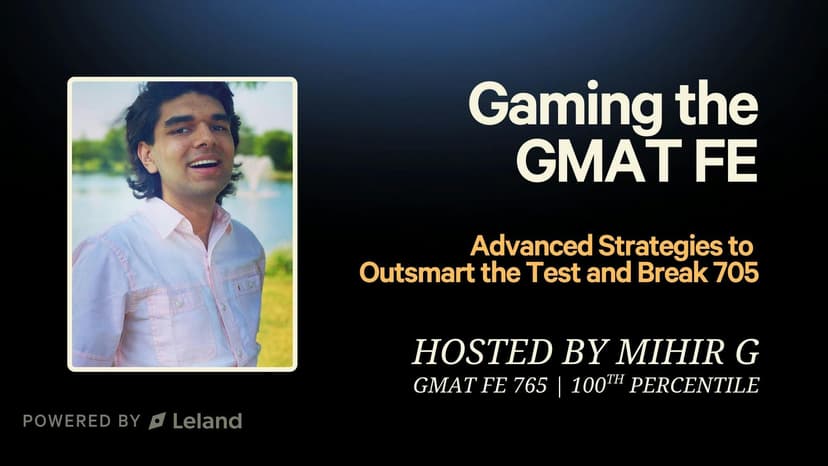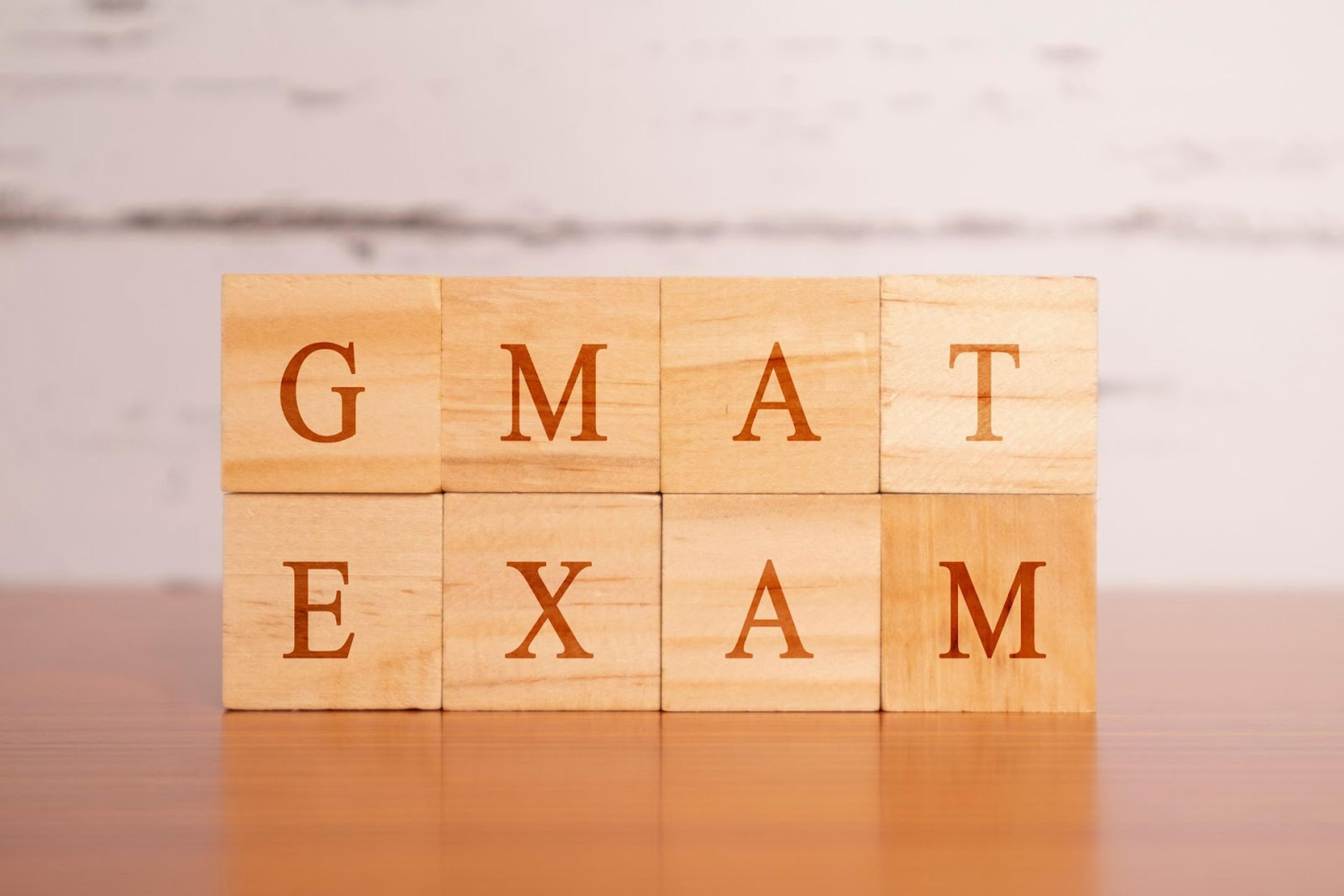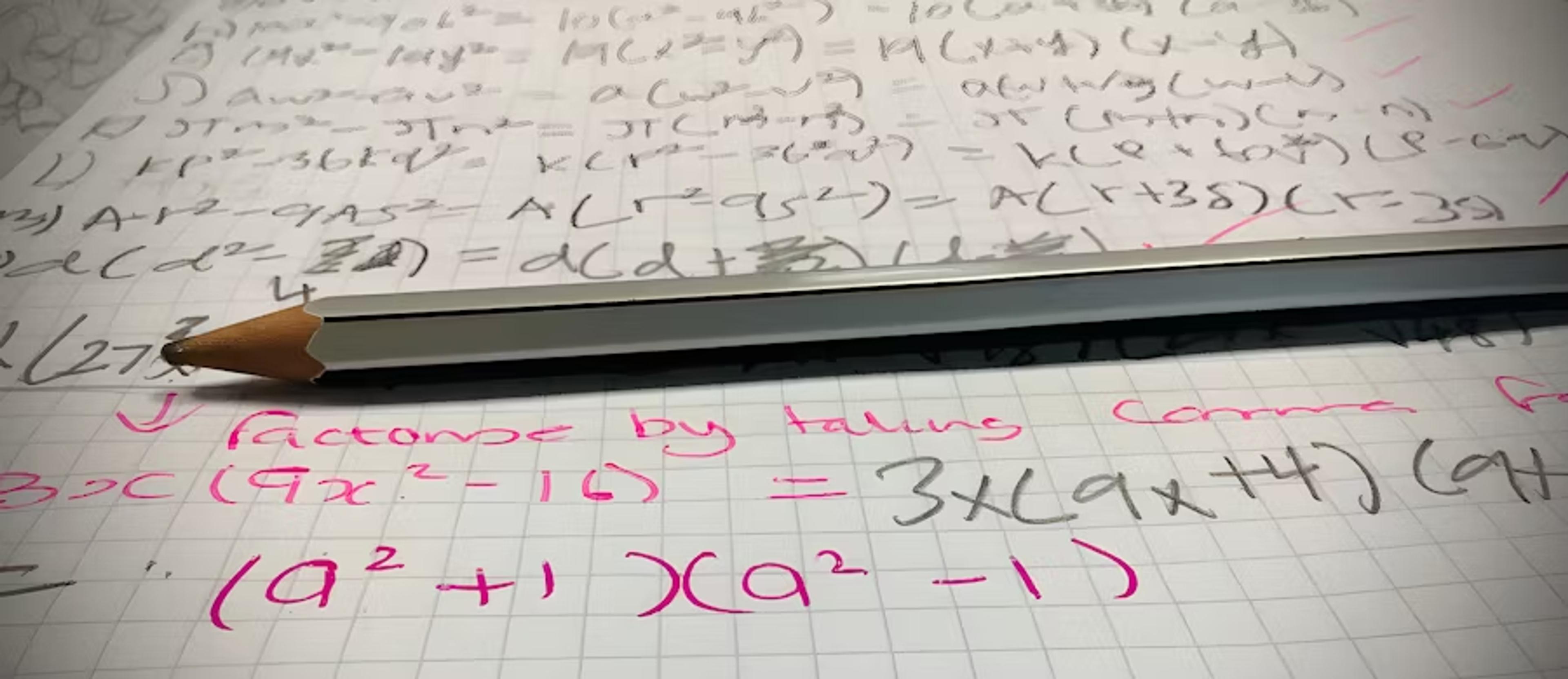
Join a free event
Learn from top coaches and industry experts in live, interactive sessions you can join for free.
Table of Contents
If you are planning to take the Graduate Management Admission Test (GMAT) and are worried about the quantitative section, then this article is for you. The GMAT quantitative section can be a daunting task for many candidates, but with the right approach and preparation, you can conquer it with ease. In this article, we will provide you with a comprehensive guide on how to master the GMAT quantitative section and the proven math strategies that you can use to succeed.
Mastering the GMAT Quantitative Section: A Comprehensive Guide
The GMAT quantitative section comprises of two types of questions, namely quantitative reasoning and data sufficiency. The section tests your ability to apply mathematical concepts and interpret data. You will be presented with various math problems that require you to solve problems quickly and accurately. The quantitative section consists of 31 questions to be completed in 62 minutes.
The first step to mastering the GMAT quantitative section is to understand the basics. You need to have a thorough understanding of basic arithmetic, algebra, geometry, and data analysis. You should also be familiar with percentage, ratios, and proportions. Once you have a good grasp of the basics, you can move on to more advanced math problems.
Another important aspect of mastering the GMAT quantitative section is time management. You need to be able to solve problems quickly and accurately within the given time frame. It is important to practice time management strategies such as skipping difficult questions and coming back to them later, or quickly eliminating answer choices that are obviously incorrect. Additionally, practicing with timed mock tests can help you improve your speed and accuracy.
Understanding the GMAT Quantitative Section and Its Importance
The GMAT quantitative section is an essential component of the GMAT exam, and it is important to score well in this section if you want to get admitted into the top business schools. A high score in the GMAT quantitative section demonstrates to business schools that you have the necessary analytical and problem-solving skills that are required to succeed in a business career.
Additionally, the GMAT quantitative section also tests your ability to interpret and analyze data, which is a crucial skill in the business world. Business professionals are often required to make decisions based on data analysis, and a high score in the GMAT quantitative section indicates that you have the ability to do so effectively. Furthermore, a strong performance in this section can also open up opportunities for scholarships and financial aid, as many business schools offer financial incentives to students who perform well on the GMAT exam.
Top Tips for Success on the GMAT Quantitative Section
Here are some top tips that you can use to succeed in the GMAT quantitative section:
- Practice regularly: Consistent practice is the key to success in the GMAT quantitative section.
- Learn to manage your time: Time management is crucial in the GMAT quantitative section. You will need to solve the problems quickly and accurately.
- Focus on the basics: The GMAT quantitative section relies heavily on basic math concepts. So, make sure you have a strong foundation in arithmetic, algebra, geometry, and data analysis.
- Use your calculator effectively: You are allowed to use a calculator in the GMAT quantitative section, so make sure you know how to use it effectively.
- Review your answers: Review your answers carefully before moving on to the next question.
Aside from the tips mentioned above, there are other strategies that you can use to improve your performance in the GMAT quantitative section. One of these is to identify your weaknesses and work on them. Take note of the types of questions that you find difficult and focus on improving your skills in those areas.
Another strategy is to familiarize yourself with the format of the GMAT quantitative section. This will help you to manage your time more effectively and to avoid getting stuck on difficult questions. You can do this by taking practice tests and reviewing the types of questions that are commonly asked in the GMAT quantitative section.
Essential Math Concepts for the GMAT Quantitative Section
In the GMAT quantitative section, you will be tested on various math concepts. Here are some of the essential math concepts that you should be familiar with:
- Arithmetic: Including basic operations, fractions, decimals, percentages, and ratios.
- Algebra: Including equations, inequalities, and functions.
- Geometry: Including lines, angles, triangles, circles, and polygons.
- Data analysis: Including mean, median, mode, standard deviation, and probability.
How to Tackle Tricky GMAT Quantitative Questions with Ease
The GMAT quantitative section is known for presenting tricky questions. Here are some tips that you can use to tackle tricky GMAT quantitative questions with ease:
- Read the question carefully: Make sure you understand what the question is asking you to do before attempting to solve it.
- Draw a diagram: A diagram can help you visualize the problem and come up with the solution more easily.
- Simplify the problem: Break down the problem into smaller parts to make it easier to solve.
- Estimate the answer: If you are running out of time, estimate the answer instead of calculating it.
Time Management Strategies for the GMAT Quantitative Section
Time management is crucial in the GMAT quantitative section. Here are some time management strategies that you can use to succeed:
- Divide your time wisely: Calculate how much time you can spend on each question and stick to it.
- Skip difficult questions: If you encounter a difficult question, skip it and come back to it later.
- Review your answers: Review your answers before moving on to the next question.
Practice Makes Perfect: The Importance of Consistent GMAT Quantitative Practice
The best way to succeed in the GMAT quantitative section is to practice consistently. Regular practice will help you to develop your problem-solving skills and improve your accuracy. Take practice tests regularly to assess your progress and identify areas that you need to work on.
How to Analyze GMAT Quantitative Questions and Avoid Common Mistakes
Analyzing GMAT quantitative questions is essential if you want to succeed in the exam. Here are some tips on how to analyze GMAT quantitative questions and avoid common mistakes:
- Understand the question: Make sure you understand what the question is asking you to do before attempting to solve it.
- Check your work: Double-check your calculations and make sure you haven't made any errors.
- Eliminate wrong answers: If you are unsure of the correct answer, eliminate the wrong answers to increase your chances of selecting the correct one.
- Don't rush: Take your time to read the question carefully and think through the problem before attempting to solve it.
Effective Study Techniques for the GMAT Quantitative Section
Here are some effective study techniques that you can use to prepare for the GMAT quantitative section:
- Create a study plan: Create a study plan and stick to it to ensure that you cover all the essential math concepts.
- Use study materials: Use study materials such as textbooks, online resources, and practice tests to supplement your learning.
- Join a study group: Join a study group to exchange ideas and discuss math concepts with other GMAT candidates.
- Take breaks: Take regular breaks to avoid burnout and keep yourself refreshed.
The Role of Calculator in the GMAT Quantitative Section and How to Use It Effectively
You are allowed to use a calculator in the GMAT quantitative section. However, it is essential to use it effectively. Here are some tips on how to use the calculator effectively:
- Know how to use your calculator: Make sure you are familiar with the functions of your calculator.
- Use the calculator wisely: Use the calculator only when necessary and avoid relying on it too much.
- Check your work: Double-check your calculations using the calculator.
Advanced Math Topics for the GMAT Quantitative Section: What You Need to Know
Once you have mastered the basics, you can move on to more advanced math topics. Here are some of the advanced math topics that you should be familiar with:
- Coordinate geometry
- Quadratic equations
- Circles
- Exponents and logarithms
- Functions and inequalities
- Permutations and combinations
Preparing for the GMAT Quantitative Section: Step-by-Step Guide
Here is a step-by-step guide on how to prepare for the GMAT quantitative section:
- Step 1: Understand the structure of the GMAT quantitative section.
- Step 2: Master the basics of arithmetic, algebra, geometry, and data analysis.
- Step 3: Practice consistently and take practice tests regularly.
- Step 4: Analyze your mistakes and identify areas that you need to work on.
- Step 5: Learn advanced math topics and practice them.
- Step 6: Manage your time effectively during the exam.
Commonly Asked Questions about the GMAT Quantitative Section, Answered
Here are some commonly asked questions about the GMAT quantitative section:
- Q: Is a calculator allowed in the GMAT quantitative section? A: Yes, you are allowed to use a calculator in the GMAT quantitative section.
- Q: How many questions are there in the GMAT quantitative section? A: There are 31 questions in the GMAT quantitative section.
- Q: How much time do I have to complete the GMAT quantitative section? A: You have 62 minutes to complete the GMAT quantitative section.
- Q: What is the importance of the GMAT quantitative section? A: The GMAT quantitative section demonstrates your analytical and problem-solving skills to business schools.
In conclusion, mastering the GMAT quantitative section requires consistent practice and a thorough understanding of basic and advanced math concepts. By following the strategies and tips provided in this article, you can conquer the GMAT quantitative section with ease. Good luck!
Browse hundreds of expert coaches
Leland coaches have helped thousands of people achieve their goals. A dedicated mentor can make all the difference.



















